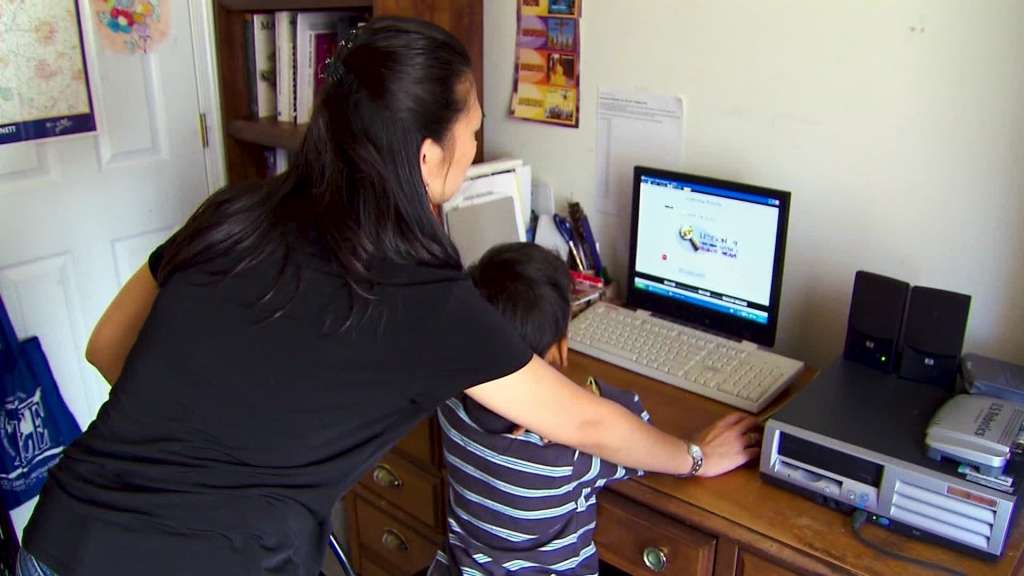(CNN) — Jeff Mosely’s job revolves around keeping students engaged in the classroom — but with many classrooms online only during the Covid-19 pandemic, that has become a challenge.
And it’s a challenge he takes personally, as the executive director of academic programs for Marietta City Schools in the suburbs of Atlanta.
“When you can’t find a kid, it’s almost like you lost one of your own,” he says.
His team tracks students who have gone missing from class. Now, in addition to following traditional academic progress, he says he’s knocking on doors, providing hotspots, and passing out computers to make sure kids have the resources they need to log on.
“Engagement is a great thing when they’re doing it. When they’re not, it’s typically because they just aren’t able to,” he says.
A survey by the EdWeek Research Center late last year found that student absences nationally had nearly doubled during the pandemic. Daily absentee rates among high schoolers were the highest at 13% — more than 1 in 8 students were not in class. Middle school absentee rates were at 11% and elementary school had the lowest rates, but still at 9%.
The reasons for chronic absenteeism vary, according to Mosely. He’s had students who have disengaged for reasons ranging from homelessness to family job loss, to a student needing a new hotspot, so that’s why he and his team head out to identify the problems and work to find solutions.
“It’s all about, am I giving you the opportunity to be successful? And have we provided you with what you need to go out into the world? Because a pandemic will happen, but education will continue,” Mosely says.
‘A perfect storm’
A year into the pandemic, the struggle with chronic absenteeism exacerbated by virtual schooling is being felt across the country.
South of Atlanta, in Henry County, Georgia, they try to consider every possibility for absences.
“There are so many different reasons that students may not be engaged, that we’ve got to design resources that will meet every single one that we can think of,” says Jessica Stormer, executive director of family and student support services for the county’s schools. “So, if it’s food insecurity, if it’s financial insecurity, if it is social support, or resources that they need, we have to have those resources lined up so that we can easily access them and make sure we bridge that gap.”
Data showing higher levels of absenteeism have increased concerns that school closures and a turn to remote learning will widen academic achievement gaps between poor students and others.
“The effects of Covid-19 really have created a perfect storm for us. We had less student contact, increased family and student needs,” Stormer says. “And then, also limited bandwidth for all of our schools individually to deal with this.”
It’s not necessarily long-term absences from school that are most worrying to school officials. According to the Georgia Department of Education, “missing more than five days of school each year (…) begins to impact student academic performance.” Henry County tries to intervene before they completely lose track of a student.
“When we have those situations where we can’t reach you, we may call your friend. We may call and get that friend’s cell phone number and have them call you and say ‘Hey, log in,'” says Chon Hester, coordinator of counseling and advisement for the school district.
As school districts figure out how to safely get more students back into the classroom full-time, Henry County public schools are hoping programs they’ve developed will help address the attendance challenges brought on by remote learning.
“We love on our children and we like them to be here, in front of us to do that so they have all the passion from the teacher and all of the staff members at the school. So, when we can’t do that, of course, we are heartbroken,” Hester says. “But we do everything that we can to wrap our arms around those babies from a distance.”
(Copyright (c) 2024 CNN. All Rights Reserved. This material may not be published, broadcast, rewritten, or redistributed.)

